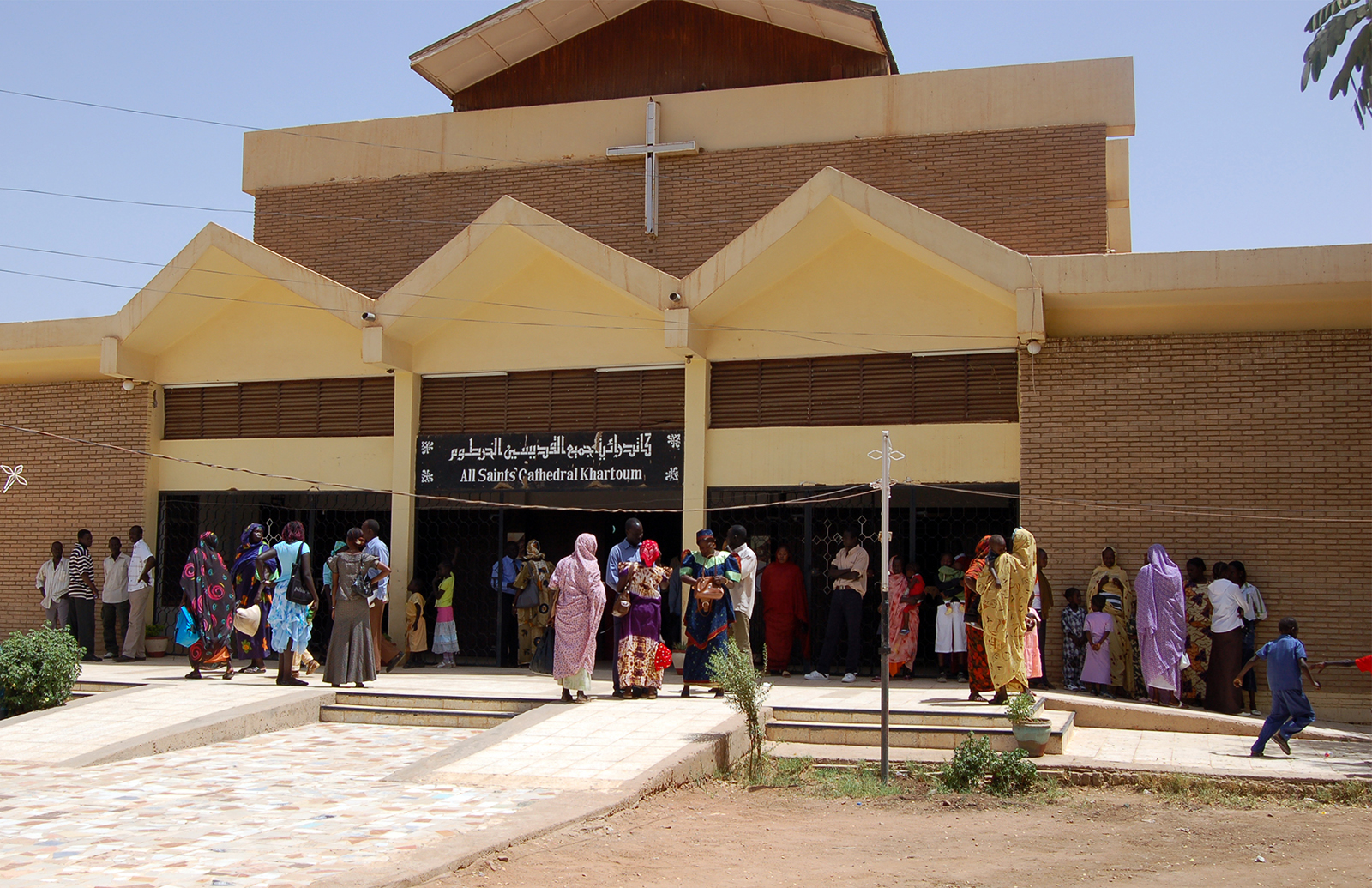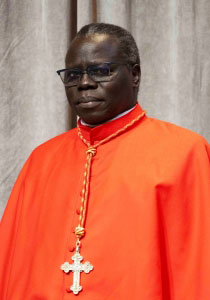
NAIROBI, Kenya (RNS) — The archbishop of Juba in South Sudan called for an immediate end to military operations near places of worship, hospitals and humanitarian aid locations after the brutal killing of a Catholic priest in El-Fasher, the capital of North Darfur, a state in neighboring Sudan.
Cardinal Stephen Ameyu Martin Mulla, president of the bishops conferences of both Sudan and South Sudan, said the Rev. Luke Jumu, a parish priest in El-Fasher, and two companions were killed by stray bullets during an intense bombing of the North Darfur capital by the paramilitary Rapid Support Forces on June 13.
“We raise our voices to heaven and to the world to denounce the horrific killing of our beloved priest, Fr. Luka Jumu, and his two faith companions,” Mulla said in a statement on June 17. “Fr. Luka died as he lived: caring for the poor, comforting the displaced, and bringing Christ’s light to the forgotten corners of Darfur.”
Jumu is the first Catholic priest known to have died in the Sudanese civil war, but his death follows a pattern of attacks against church personnel and property across Sudan since the outbreak of the war in April 2023, according to the cardinal.
At least 150 churches have been destroyed in the war, according to a statement last year by the U.S. Commission on International Religious Freedom.
Cardinal Mulla said seminaries have been looted, convents abandoned, parishes desecrated and countless faithful scattered in the war, which religious groups have often described as senseless.
The latest rash of attacks on churches in Sudan occurred June 9, when the Rapid Support Forces attacked an Episcopal (Anglican) Church, an African Inland Church and a Roman Catholic Church in El-Fasher, according to Church World Service. The city is under the control of the Sudanese army, but RSF has kept it under siege since 2024.
The war in Sudan, in northeastern Africa, pits the Sudan Armed Forces, led by Gen. Abdel Fattah al-Burhan, against the paramilitary Rapid Support Forces, under the command of Mohammed Hamdan Dagalo, commonly known as Hemedti.
Since the start of the war, some estimates put the human death toll at more than 150,000 from either direct combat or disease or starvation resulting from the fighting.
“Cholera disease broke out in Khartoum State and Omdurman in particular,” Archbishop Ezekiel Kondo of the Episcopal (Anglican) Church of Sudan told Religion News Service in a recent interview. “Hundreds of lives are lost, while thousands were infected. This is due to no clean drinking water and an unclean environment.”
“I understand there is some very limited help from NGOs,” said Kondo from Port Sudan on his country’s Red Sea coast, where he has retreated from the war. “Many people are returning to Khartoum (Sudan’s capital) in big numbers despite the situation.”
According to the United Nations High Commission for Refugees’ annual Global Trends Report, Sudan has replaced Syria, Afghanistan and Ukraine as home to the world’s largest displacement of people, with 14.3 million refugees and internally displaced people.
“The international community knows how bad the situation is. If they want help, they can do so,” Kondo said.
More than 90% of Sudan’s 42 million people practice Islam. Christianity is the largest minority religion, accounting for about 5.4% of the population.
In June last year, the U.N. Security Council passed a resolution calling on the paramilitary to end the siege.
Cardinal Mulla addressed the warring parties, reminding them that the blood of the priest cried out from the ground of Darfur, joining the voices of countless innocent Sudanese of all faiths and walks of life who have fallen victim to this senseless conflict.
“Targeting the clergy and religious institutions constitutes a war crime under international law. We remind you that Sudan’s historical dignity has always been rooted in its religious coexistence,” he said.
Mulla urged the United Nations, the African Union and other nations with influence to use it to end the conflict and push for a humanitarian corridor so that vulnerable civilians, including the displaced priests and religious, can get aid.
“The church’s mission in Sudan remains unshakable. Even in the shadow of death, the light of Christ shines brighter. The church will not flee, will not be silenced and will not abandon its divine calling,” said Mulla.

